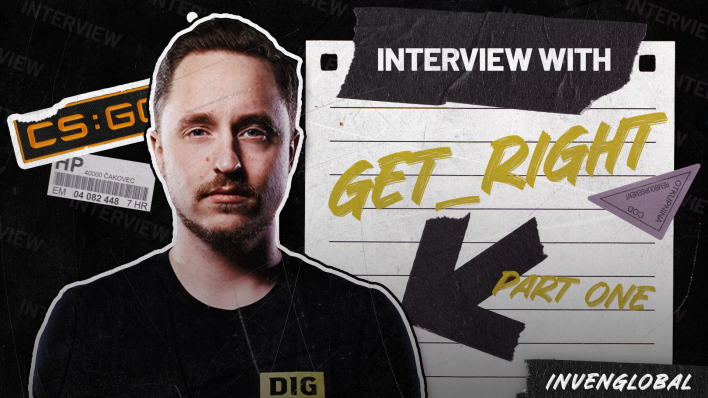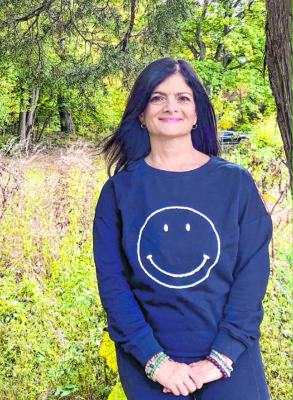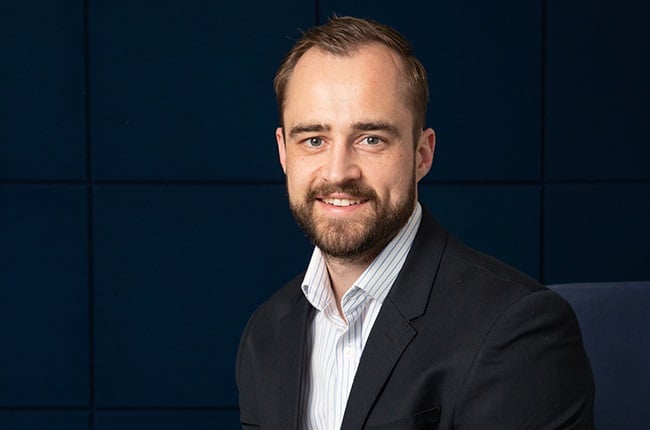
GeT_RiGhT opens up about health issues, pressure: “I was in a way, way darker place than I am now.”

It’s rare in esports to find someone with the resolve of Christopher “GeT_RiGhT” Alesund. A person not only willing to face the arduous grind that comes with the pursuit of greatness, but who continues marching forward even when facing things like public scrutiny, debilitating health issues, and the darkest parts of his own mind.
What makes GeT_RiGhT even more of an anomaly is how open and candid he is. Few people in life, let alone esports are this relaxed and willing to talk about challenging subjects. It’s been more than a year since the Swedish legend stepped away from competing and since then he’s kept a relatively low profile, focusing on the community he’s building as a content creator.
Inven Global had the privilege of sitting down with GeT_RiGhT for a long talk about his career and thoughts on the current landscape of esports, and we’re delighted to say he held nothing back. In this first part, GeT_RiGhT reflects on his time as a content creator, his future as a competitor, and how VALORANT has impacted the Counter-Strike scene.
It’s been about a year since you stepped away from competing in CS. In that time you’ve shifted more to a content creator role. What drove that decision?
There are more things that made sense for me in doing content creation — I had a lot of different health issues that I didn’t have before (though I’ve been vocal about this in the past, such as my stomach disease and ear surgery). Towards the end of my professional career in Dignitas, I got COVID when it first started. I got all the symptoms and survived, but I got what’s usually called post-COVID conditions. I’ve been having a lot of issues with things like my left arm, my left leg, and the left half of my face. My face would get numb, which could go for days or even a week and then randomly disappear. That affected my gameplay a lot and was something I needed to work on.
I took a lot of time, both when competing and when I was benched, to see different specialists to find out what was happening with my body. The worst thing is I don’t really have an answer to this thing still, but it’s been getting better and better for the time being. It could be either related to stress, my anxiety, or that I’m getting panic attacks way more often than I should be. So for me, it was the right way to go. Because I also felt I lost a lot of time when I was a professional player and missed a lot of social activities: meeting my family when it’s a big holiday or someone’s birthday — things like that.
It was also the playing and competing in tournaments, which is something I’ve done throughout my whole young-adult life. It’s something I don’t regret, but the older you get, you get another thought process about a lot of things. It felt much better in that way — focusing on content creation instead of jumping directly over to coaching or broadcasting, which is something I’m not really familiar with. I need to push myself for that to be interesting for me.
“If you’re a streamer with certain goals, you can’t be too devastated if it doesn’t work to the extent you want it to. That’s something I learned quickly.”
I did do a couple of broadcasts such as Katowice last year with ESL, which was a very weird situation for me since COVID was still active and there were a lot of restrictions, and I stayed in Germany for three weeks to be casting from a studio with the rest of the people. During that time period, I didn’t feel satisfied with my performance. I could have done so much better. But I also felt it wasn’t suited for me. I’m still interested in doing those things, but I personally just love what I’m doing right now and it’s more interesting for me: streaming, having my community, and having fun, basically.
For the coaching part — I don’t see myself as a teacher. If I would explain something to you, it would need to be as fast as someone that has expertise in being a teacher or coach. For me, it would take a much longer time to explain it. It’s something you could learn over time, but again, I don’t think it suits me. Maybe it’ll happen in the future, but content creation is way more interesting for me.
So if you are able to make a full recovery, you still think you’ll focus on content creation?
I would continue. It’s not something I’d walk away from. Honestly, I thought in the beginning, I wouldn’t actually enjoy it. But it’s been growing on me more and more as time passes. Over the past year and a half, I’ve been having a blast — a lot of cool opportunities that I wouldn’t have been getting doing something else.
One of the things that’s also been a way bigger factor for me is becoming happier. Happiness can be in a lot of different ways. For me, this way suits me and I get happier and happier with connecting to the people in my community. Even though it’s a much smaller base than people would probably expect, if you ask me personally, I’m super happy with the progress I’ve made — I love my community. That’s the most important thing. Because if you’re a streamer with certain goals, you can’t be too devastated if it doesn’t work to the extent you want it to. That’s something I learned quickly — you can have goals, but you have to sustain your community.
“I was in a big mess, if I’m gonna be completely honest. I was in a way, way darker place than I am now.”
That’s what I have with my community — I sustain it so good that… it helps me. And that’s what I mean with happiness, because I am very vocal and honest with how I’m doing, and my community really accepts that which is just awesome. Because at the end of the day, I’m just a person, and they say what they think and believe. They’ll say like, “It’s a crappy day for me” and I’ll ask them to explain and if there’s anything I can do. And I feel like they listen to me when I’m also talking about my things. That’s something that interests me and I don’t see myself moving from it anytime soon.
How would you compare your headspace now compared to the last two or three years when you were competing?
I was in a big mess, if I’m gonna be completely honest. I was in a way, way darker place than I am now, or before in my career, because of a lot of different aspects outside of the game, personal things, and personal relationships. I can’t really go too deep into it because I’ve never been that vocal, but I’ve been vocal to some extent about it.
But I felt “afraid” a lot of times during those years, if we can use that word. It was not for any specific people, or for my former employer — nothing like that. But I just felt like people were looking at me differently than before. That shook up my confidence. CS is a lot about confidence, and if I don’t perform (which I didn’t do towards the last two or three years) it affects me in my personal life. Because I want to get back to at least a level where I’m enjoying myself when I’m playing.
“I just want people to remember that there’s also a human being behind the monitor, not just a nickname.”
Which I did — I never said I hated playing — but if I play a tournament, I don’t know if our fans that I was playing for are gonna hate me because I’m not playing well, or if they’re going to support me and make me perform better while I’m playing at a good level. I was just in a way darker place that affected a lot of different aspects of my personal life, how I was performing in-game, and my health as well — as I said, being a person with a stomach disease for a couple years now (I think 10 as of today).
And it changes. It takes a harder toll on you than you think, and it’s hard for someone being a professional to be having such problematic health. And it’s hard to get someone to listen to you sometimes, when you are like me that’s grown up in a way where you don’t speak about it most of the time. You push it down, [laughs] and then hope it gets better, basically. And that’s why I feel like where I am in my life right now is something that I haven’t seen in a long time. And it’s something that I really hold dear and to try to take care of more and more, because I don’t want to head back into those bad places and bad thoughts. Because at the end of the day, I’m just a human being that loves games. And I just want people to remember that there’s also a human being behind the monitor, not just a nickname.

Can you elaborate on what you meant by people looking at you differently?
I didn’t perform to the level that people have seen from me through the years, and if they don’t feel like I contributed to the team, I should be replaced. Which is understandable, just like with any sport. If you see a player who doesn’t perform to the level that they’ve been doing through the years, of course, they’re gonna raise questions. And if they don’t feel they’re getting their questions answered — which a lot of them didn’t — they’re gonna be vocal and say, “Hey, why are we still keeping this player?” And people spotted me out easier than maybe some of my teammates, for example. And surely, we weren’t performing as a team either. So I was viewed by the community and fans probably as the weakest link, basically.
And you’d say that was one of the factors in why that period of time was so dark for you?
It is one of them, but it’s not everything, for sure. As mentioned before: the health as well contributed to that, performing to the level that I want to, and feeling like every time that I get a DM or a tweet or whatever, I was too afraid because sometimes there’s gonna be a death threat or whatever it is because I didn’t perform to the level they want me to perform to. And people care about it, but I wouldn’t say it’s like, “That’s the one.” But it’s been part of the issue overall, to be honest. And I would say the last point of things is a lot of private problems as well outside of the game.
I know you’ve had some setbacks with your health in recent tweets. Overall, though, have things improved since you’ve stepped away from competing?
Yes, I think I’m in a better place in life. And health-wise: much better than I’ve been since one and a half years ago. I had a setback recently where I’m becoming immune to my medicine for the disease I have, but it’s been much better than about six weeks ago when it was really bad.
Yeah, like I said, one of the biggest things that I’m focusing on a lot is health and happiness. And I can see improvements: I feel better about myself, my confidence is back on, and just outside in the normal life — I feel better about myself and I smile more than I did beforehand. I think that’s the thing with not being a professional athlete anymore, I guess. That I don’t need to think about other things than just myself.

Would you ever consider returning to competitive — if in some case your health was in a very good spot and you felt you were at an appropriate level?
No, I am super happy where I am in life. That was just part of my life, and it doesn’t suit me as a human being anymore. But never say never, because maybe there’s a team that I really want to play with, and they actually ask me. But I’m pretty sure I would still say no because I am in a much better place in life, that the competitive thing is not there for me anymore. But surely, you always miss it extra when you’re seeing the big tournaments and remembering getting nervous before the big game goes live and all of those things. But the training hours and practicing — I don’t think it’s really suited for me anymore. But, who knows? Maybe in six months or a year’s time, I’m back. But it just doesn’t suit me for the time being.
With your stream, you don’t play much VALORANT these days — before you’ve stated it’s a cool game. How much has your opinion changed recently? What made you step away from the game?
I didn’t really step away from it, I stopped a little bit because I couldn’t find the group of people I wanted to play with. And a lot of those people I wanted to play with took a break from the game — not known streamers or anything, but a nice group to play with. And the second thing was that I actually play it off-stream, because I want to show off a little bit better level than just me saying, “Hey, let’s play VALORANT again. I haven’t played it for six months and I don’t know the meta, how the character works, how the new map works, etc.” It would look bad, and with the competitive spirit I still have, I don’t want to lose. I just felt like I couldn’t perform to the level that I want to show off to the fans that follow me. In CS, I can still do it no matter what — if I’ve been away for a month or something, I know what’s the drill at least. But in VALORANT I took a step back, and felt like I needed to perfect my game before I’m actually heading into it again.
“I don’t see anything wrong where two FPS games — especially 5v5 games — are the top dogs in the industry. It makes the games better.”
This topic is talked to death somewhat, but I wanted your take given your experience in CS. Before you’ve stated you’re not worried about VALORANT harming CS. Has your opinion changed at all?
I’m not too worried — it’s basically the same answers as before. The only problem is that it makes sense for the NA region to have a lot more teams in VALORANT. Because CS is a game that’s going back more and more to the LAN tournaments and played more and more per weekends or per month. Whereas in VALORANT, you have more of a strict schedule. Which is awesome for the players, but it also can hurt players. Because if they don’t play well, they’re not going to play Masters, for example, and the next one is going to be a couple of months away. If you miss that one, then basically the whole year is gone, or before it comes to Champions, for example.
But in CS, it’s a little bit forgiving in that way, because there are so many more tournaments, and it’s all on the line all the time. VALORANT’s a newer game, so it makes complete sense for the American scene and for the business part to be supporting a game that’s a little bit less violent (at least in their approach towards the game, even though it is still a violent game when you look at it towards the end) with its outlook and graphics, while CS is still dealing with the ‘terrorist’ and ‘counter-terrorist’ angle. That’s maybe not a good thing to invest in to the outside.
But in NA it’s a trend — when a new game comes in, a lot of the big names in NA get into it to see if it actually has a huge future in it. And VALORANT is just one of them — with having a support system from Riot Games, and doing it in a different way than CS. We don’t really have that kind of support, but we have great tournament organizers who actually support the game to have professional players and teams. It’s just a completely different industry if you ask me.

People are many times worried about the health and survivability of the CS scene. Considering how long you’ve been around the franchise — and seen all the different times people have been worried about this before — how do the problems we have now compare with the past?
If you compare it to other time periods, I think the players had more right to be worried than nowadays, because the industry is so much different, and you can make a lot more cool stuff. There are other aspects that weren’t around when I grew up playing the game. Before, you were very concerned about your organization and sponsor. Your organization was the only source of income that you had as a player. Nowadays, you have income for streaming, personal partners, and your organization finding newer partners. And there are newer sponsors that weren’t there when I grew up.
But the beautiful thing to me with the discussion with VALORANT next to us, breathing down the neck of CS:GO: it’s good competition. I don’t see anything wrong where two FPS games — especially 5v5 games — are the top dogs in the industry. It makes the games better, and it makes the competition try harder to be more successful.
When a new game comes out, it’s always easy to become a professional in the beginning, because you don’t know how the industry is going to change. But when it becomes stable, like it’s been starting to do more with VALORANT, you’re gonna be seeing those players that actually are destined to be the successful gods of the game, instead of others who weren’t really making the cut. And that’s just the competition of the sport — it’s something we can’t deny.
Even for me, I would have otherwise been pushing myself if I didn’t have the health issues. And if I didn’t become worse and worse for years, I would still try to continue more and more. But there’s always someone else who is gonna breathe down your neck to become better than you are or take your spot in a team. But I just think, overall, with the two games in the industry itself, it’s exciting times no matter what. Because if it weren’t for the competition in either of the games, it wouldn’t be more interesting than it is now.

How much different would you see the landscape of CS:GO if not for VALORANT?
NA would have been at least bigger than it is. But I think a lot of players would probably eventually leave, especially in NA. People and players get older, and eventually they have to think about the economics, and it makes complete sense. When a similar game like VALORANT comes in and makes a huge opportunity for players that are pretty decent at FPS or even really good — it makes sense for players like that to move over.
If the pandemic didn’t really happen, I think it would’ve been a tougher fight between the games. And it would be tougher, because you didn’t know which game actually had more players than the other. But now it feels a little bit more stable. I could be completely wrong, but that’s at least how I look at it. NA’s still there, it isn’t dead. There’s still a lot of talent there, but it’s how they behave and how they take care of the chance they are getting.
You think with the mass exodus of CS players moving VALORANT — a lot of them would have retired from the game anyway?
I don’t think they would have retired, but they would find other games in the FPS genre and try their luck. Would they become as successful as some of them are right now? I don’t know. But I would say there would be a lot of players that would be at least thinking about changing games, or think about doing something else. I don’t think everyone would have left at least like they did.
Part 2 of our chat with GeT_RiGhT will be published Thursday, May 26.




